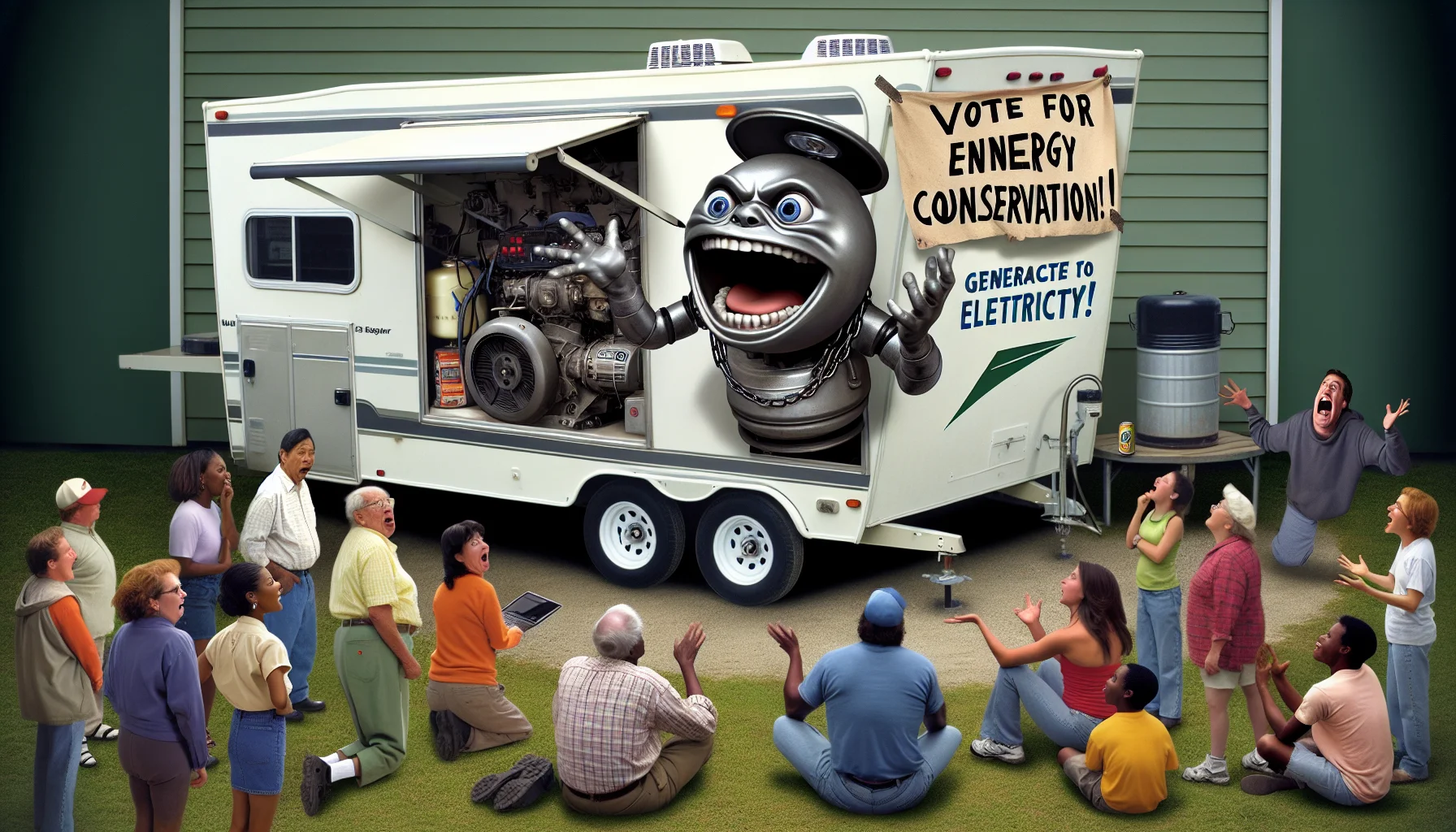Built in rv generator Quiz
Test Your Knowledge
Question of
Understanding Built-In RV Generators
Built-in RV generators are integral components for recreational vehicles, providing a reliable source of electricity while on the move. These generators are specifically designed to fit within the confines of an RV, offering a seamless solution for powering appliances, lighting, and other electrical needs without the need for external power sources. Their importance cannot be overstated, as they allow for the comforts of home while traveling, enabling RVers to explore off-grid locations without sacrificing convenience or comfort. By converting fuel into electrical power, built-in RV generators ensure that regardless of where your travels take you, you have the electricity you need to enjoy your journey to the fullest.
Types of Built-In RV Generators
- Diesel Generators
- Gasoline Generators
- Propane Generators
How Built-In RV Generators Work
Built-in RV generators are designed to convert mechanical energy into electrical energy, providing a reliable power source for recreational vehicles. They operate by running on gasoline, diesel, or propane, with the engine's motion driving an alternator that produces electrical power. This process begins when the generator's fuel burns in the engine, creating mechanical energy. The engine then turns the alternator's rotor, which, through electromagnetic induction, generates alternating current (AC) electricity. This electricity is then available to power the RV's appliances, lights, and charging systems, ensuring comfort and convenience even in remote locations without access to external power sources. Built-in generators are especially valued for their integration into the RV's systems, allowing for easy operation and management of power needs while on the move.
Benefits of Having a Built-In RV Generator
- Convenience - Enjoy power anytime and anywhere without the need for external hookups.
- Reliability - Built-in generators are designed to be more reliable, ensuring you have power when you need it most.
- Independence from external power sources - Travel off the beaten path without worrying about finding a power hookup.
- Continuous power supply - Keep your appliances and devices running smoothly without interruption.
- Increased comfort - Use air conditioning, heating, and other comforts of home, regardless of your location.
- Cost-effective - Save money on campground fees and external generator rentals.
- Space-saving design - Integrated into your RV, saving valuable space for other essentials.
- Improved safety - Built-in systems are generally safer and more secure than portable units.
Selecting the Right Built-In RV Generator
When it comes to choosing a built-in RV generator, several key factors should guide your decision to ensure you select a model that best suits your needs. First, consider your power needs by evaluating the wattage requirements of all the devices and appliances you plan to run simultaneously. This will help you determine the generator's capacity to ensure it can handle your energy demands. Next, think about the fuel type. Generators for RVs typically run on gasoline, diesel, or propane, each with its own set of advantages and considerations in terms of availability, storage, and cost. Finally, don't overlook the importance of noise levels. Since the generator will be used in close proximity to your living and sleeping areas, opting for a model that operates quietly will enhance your comfort and the overall enjoyment of your RV experiences.
Installation and Maintenance Tips
- Read the Manual: Before installation, thoroughly read the manufacturer's manual for specific instructions and safety warnings.
- Choose the Right Location: Install the generator in a space that allows for proper ventilation and is accessible for maintenance and repairs.
- Secure Mounting: Ensure the generator is mounted securely to prevent vibrations and potential damage while the RV is in motion.
- Proper Ventilation: Ensure adequate ventilation for the generator to prevent overheating and to allow for exhaust fumes to be properly expelled.
- Electrical Connections: Have a professional electrician connect the generator to your RV's electrical system to ensure safety and compliance with electrical codes.
- Regular Maintenance: Perform regular maintenance checks, including oil changes, air filter replacement, and spark plug inspection according to the manufacturer's schedule.
- Check Fuel System: Regularly inspect the fuel system for leaks and ensure the generator is using the correct type of fuel.
- Run Periodically: Even if not in use, run the generator periodically to keep it in good working condition and to identify any potential issues.
- Battery Care: If your generator has a battery, ensure it is charged and inspect it regularly for signs of wear or corrosion.
- Professional Inspections: Have a professional inspect the generator annually to ensure it is operating safely and efficiently.
Built-In RV Generator Safety Tips
| Safety Tip | Details |
|---|---|
| Ventilation | Ensure the generator exhaust system is properly vented outside to prevent carbon monoxide buildup inside the RV. |
| Routine Checks | Regularly inspect the generator and its components for leaks, damage, or wear. Check oil and coolant levels before each use. |
| Proper Storage | When not in use, store the generator in a dry, well-ventilated area. Avoid storing fuel inside the RV to reduce fire risks. |
| Carbon Monoxide Detector | Install a carbon monoxide detector inside the RV and test it regularly to ensure it is functioning properly. |
| Fuel Safety | Use the correct fuel type for your generator, and never refuel while the generator is running or hot. Allow it to cool down first. |
| Electrical Safety | Ensure all electrical connections are secure and that you are using the proper cords and outlets. Avoid overloading the generator. |
| Operational Limits | Be aware of your generator's capacity and avoid exceeding its operational limits to prevent overheating and damage. |












